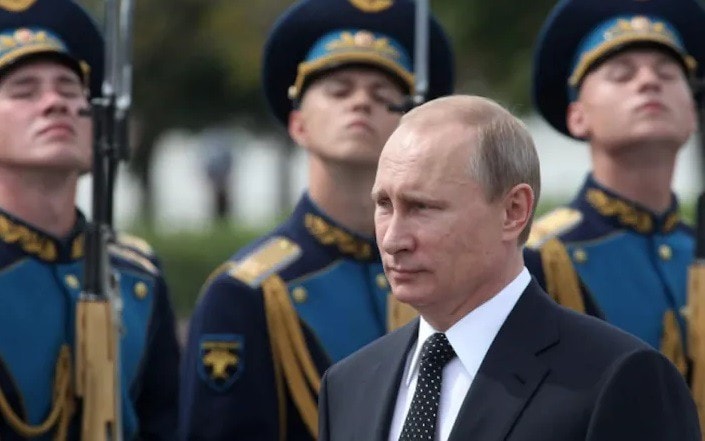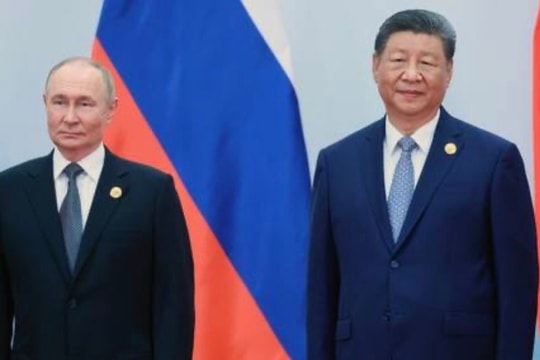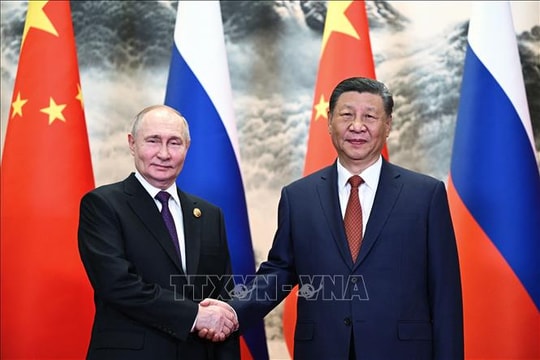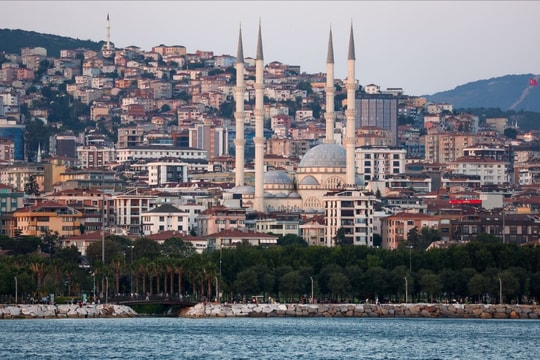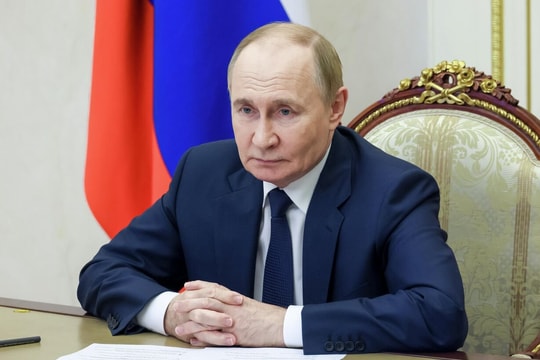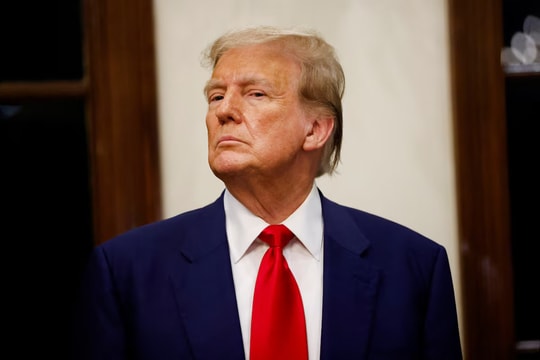Why do Russian voters have high confidence in President Putin?
Russian President Putin's approval rating remains high, though not as high as it once was. Many Russian voters want change, but they have yet to see anyone more deserving.
The recent referendum on constitutional reform in Russia has cleared the way for Mr Putin to serve two more terms as president, until 2036, even though his popularity is not what it used to be.
The results of the referendum on July 1, 2020 showed that the current Russian President Putin (67 years old) was approved by nearly 78% of voters to have the opportunity to stay in power until 2036, when he will be 83 years old. Information said that the rate of voters participating in the referendum was up to about 68%.
|
| Russian President Vladimir Putin reviews the honor guard. Photo: Daily Beast. |
Despite many obstacles, Putin still "scores very high"
The results of the referendum on the Russian Constitutional reform mentioned above are really impressive, because Mr. Putin is currently facing many difficulties such as the people's living standards decreasing, the economy stagnating due to the Covid-19 pandemic as well as the oil war (with Saudi Arabia)...
Although Putin's approval rating is now at an all-time low, it is still a respectable 59.9%.
Ordinary Russian voters say they see no other political choice ahead.
“Honestly, I don’t see any alternative,” Kirill, a 42-year-old voter at a polling station in Saint Petersburg, said after casting his ballot. “It is unlikely that in 2024 someone more worthy than Putin will run for president of Russia.”
Without this constitutional amendment, Putin would have been limited to four presidential terms (for now).
But thanks to the results of the referendum, with 77.93% of Russians participating in supporting the direction of amending the Constitution, Mr. Putin can reset the number of his previous presidential terms to 0 so that he can enter a new presidential election in 2024. And in theory, from 2024, Mr. Putin can be president for 2 more terms, meaning he can hold power until 2036.
Putin has now served four terms as President of Russia, from 2000-2004, 2004-2008, 2012-2018, and 2018 to present, along with two more terms as Prime Minister. Thus, he is the longest-serving leader in Russian and Soviet history, surpassing the record of Soviet Prime Minister Joseph Stalin (1941-1953).
July 1st is not random?
The referendum is needed to give Putin more legitimacy and prestige amid his lowest approval rating since 2000. The Covid-19 pandemic is currently spreading rapidly in the world's largest country, with more than 6,000 cases recorded each day, according to official statistics.
President Putin has set July 1 as the “ideal date” for the referendum. But critics say he needs constitutional reforms passed before the full economic impact of the Covid-19 pandemic becomes clear – by which time popular discontent could have grown from a “whirlwind” to a “tornado”.
In recent times, street posters and television advertisements have focused on constitutional amendments that appeal to Russians, such as the introduction of God into the law, and a series of social welfare guarantees.
The Kremlin has deployed a series of measures to ensure high turnout, including methods such as mobilizing state employees and employees of Kremlin-friendly private companies. Moscow residents who register to vote also have the chance to win prizes. Due to social distancing rules, early voting has been taking place since June 25.
The opposition believes that there may have been vote fraud in this referendum, so some people boycotted it.
Elizaveta, 42, waited until the last day to vote and voted against the constitutional amendments. “I am satisfied with the current constitution and oppose the recalculation of Putin’s term,” she said.
Preventing infighting and paralysis due to succession planning?
Putin has said he is not sure whether he will run for president in 2024, but many analysts say he needs to keep the possibility open.
In a documentary aired on Russian state television's Rossiya 1 channel, Mr Putin expressed concern that the search for his successor would paralyse governance.
“You need to work, not look for a successor,” Putin said. “I can tell you from my experience of about two years that instead of working in a steady rhythm at various levels of government, you are looking for a potential successor.”
According to Tatyana Stanovaya, a political analyst at the Carnegie Moscow Center, Mr. Putin feels that within the Russian elite, different factions are fighting to determine his successor.
Ms Stanovaya believes that Putin does not like that and sees in it the risk of destabilization.
By securing re-election in 2024 and possibly 2030, Putin has somewhat addressed this problem.
In a recent article for the Carnegie Moscow Center, author Aleksey Kolesnikov argued that the referendum was intended to confirm the existence of the “Putin Majority” group – a community united by conservative values and belief in the leadership of a strong, centralized leader.
According to Grigory Golosov, a professor of comparative politics at the Saint Petersburg European University, Putin’s approval rating of 59% in May 2020 may be higher than it actually is for two reasons: 1- People are afraid to say “no”; and 2- People simply do not see any other options.
Putin's popularity was arguably at its highest during different periods: when he led Russia out of the chaos of the Yeltsin era in the 1990s, when he led Russia out of the Chechen wars, and when Russia successfully and almost bloodlessly annexed the Crimean peninsula in 2014.
But nowadays Russians are less enthusiastic about foreign adventures and more concerned about living standards./.

